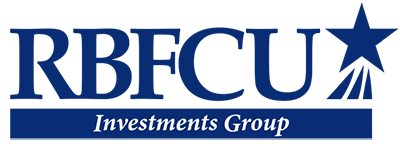IRAs and Retirement Planning: What You Need to Know
Perhaps you’ve left money in a 401(k) with a former employer or in an old retirement account and are wondering about how to incorporate those funds into your financial plans. Or maybe you inherited an account and are puzzling through withdrawals, required minimum distributions (RMDs) and taxes. There are many reasons to seek out information about Individual Retirement Accounts (IRAs).

Because many RBFCU members are interested in better understanding the role that IRAs can play in their retirement planning, we’ve created this article to answer a few common questions.
Plus, to make it easier to explore the topic, we’ve divided the article into seven parts:
- Part 1: Eligibility
- Part 2: Types of IRAs
- Part 3: IRA Options for RBFCU Members
- Part 4: Federal Contribution Limits
- Part 5: Rollovers, Transfers and Conversions
- Part 6: Withdrawals and RMDs
- Part 7: Special Considerations
Part 1: Eligibility
What is an IRA? Who is eligible for one?
If you have a full-time job, you may already be making automatic contributions into a 401(k) sponsored by your employer. Or perhaps you work in an industry or governmental sector where pension plans are commonplace.
Either way, although employer-sponsored 401(k) and pension plans are great ways to save for retirement, they’re certainly not the only way to prepare financially for the future.
For many people, IRAs may serve not only as an alternative or extra means of saving for the future, but also provide potential tax benefits.
Offered through a bank, credit union or broker, IRAs typically provide more investment options than 401(k) plans, which allow higher annual contributions.
Most workers are eligible to contribute to IRAs, although there are limits in place for high-earning households for Roth IRAs. Meanwhile, many people who have an employer-sponsored 401(k) or pension plan opt to also invest in an IRA, after maxing out the amount their employer is willing to match. This strategy may help someone accrue more retirement funds faster than if they relied solely upon an employer-sponsored retirement account.
» Tip: For Texas teachers and other school employees, 403(b) plans offer a means of supplementing your Teacher Retirement System (TRS) savings. They function similarly to 401(k)s, but are unique to the industry. Learn more.
Part 2: Types of IRAs
What are the different types of IRAs?
According to the IRS,1 there are several different types:
- Traditional IRA
- Roth IRA
- Payroll Deduction IRA
- Simplified Employee Pension (SEP)
- Savings Incentive Match Plan for Employees (SIMPLE)
- Salary Reduction Simplified Employee Pension Plan (SARSEP) — set up prior to 1997
Traditional and Roth IRA plans are the only ones not wholly contingent upon employment. Thus, they are the focus of the remainder of this article.
Remember: Before setting up and contributing to either a Traditional or Roth IRA, you may want to consult with a licensed tax advisor to determine the eligibility and other considerations either may hold for you or your household.
Let’s review the differences between them:
Traditional IRAs
Typically funded with pre-tax money, your contributions may be tax-deductible, if neither you nor your spouse is covered by a workplace retirement plan. Otherwise, your modified adjusted gross income must be below certain limits.
There is no personal or household income limit to creating a Traditional IRA. And, starting at age 73, you'll have to take a required minimum distribution (RMD) every year. For early withdrawals prior to age 59½, unless an exception applies, there can be a 10% IRS penalty.
Roth IRAs
Funded with after-tax money, this type of IRA may permit tax-free withdrawals at retirement (provided certain conditions are met). There are income limits, but there are no RMDs. Prior to age 59½, there may be a 10% IRS penalty on early withdrawals of non-qualified earnings.
Depending upon your goals and objectives, a financial advisor may suggest a combination of plans for your consideration. For instance, putting money into both a Traditional and Roth IRA simultaneously may diversify your tax strategy in beneficial ways.
Part 3: IRA Options for RBFCU Members
What should RBFCU members know about their IRA options?
Members of RBFCU have two IRA product lines they may wish to consider. One is offered through the credit union. The other is available through RBFCU Investments Group.
Below is an overview of those options.
Wondering if RBFCU members can elect to hold IRA accounts with both entities simultaneously? Yes, you can!
Credit union savings
IRAs with the credit union are generally a more conservative account through which you can collect a guaranteed interest rate on money that you’ve deposited into RBFCU. They’re insured by the National Credit Union Administration (NCUA), so deposits and interest earned aren’t at risk with this type of IRA up to $250,000. RBFCU Dividend IRA accounts are also separate from other deposit accounts.
Investing
IRAs with RBFCU Investments Group allow you to convert your savings into an account that will help you build a personal retirement investment strategy that reflects your financial needs, goals and level of risk tolerance. Working with a financial advisor, you can also choose investment solutions from a variety of stocks, bonds, exchange-traded funds (ETFs), mutual funds and more offered through Ameriprise Financial Services, LLC.2
This type of IRA is potentially riskier, but it also may result in a better return and potentially grow at a pace that exceeds inflation. IRAs backed by the Federal Deposit Insurance Corporation (FDIC)* and Securities Investor Protection Corporation (SIPC) are available through Ameriprise, with coverage up to applicable limits. Different IRAs have different costs, fees and liquidity which you should discuss with a financial advisor.
» Learn more about RBFCU Investments Group
*Important:
Ameriprise Financial Services, LLC is not an FDIC-insured bank; FDIC insurance only covers the insolvency of FDIC-insured banks.
Certain conditions must be satisfied for pass-through FDIC insurance coverage to apply.
Part 4: Federal Contribution Limits
What are the current federal contribution limits?
A financial advisor can help you stay informed about IRA contribution limits, eligibility and tax deductibility.
Remember, too, that the current contribution limits shared below may vary based upon your income level and tax status.3 In fact, there may be contribution caps for high-earning workers, too. Again, a financial advisor, together with a licensed tax professional, can be helpful resources as you navigate your options.
Current contribution limits (2024): $7,000
Additional “catch-up” amount for people 50+ years of age (2024): $1,000
Part 5: Rollovers, Transfers and Conversions
What’s the difference between an IRA rollover, transfer or conversion?
With an IRA rollover, one moves funds from one qualified retirement account (such as one with a previous employer) to a Traditional IRA. It may be beneficial if you seek to consolidate retirement accounts. Typically, this is a non-taxable event. You should consider the advantages and risks before implementing this strategy.
For an IRA transfer, one moves money from a current IRA to another IRA at a different institution.
Through an IRA conversion, one moves money from a tax-deferred account (either a Traditional IRA, Simplified Employee Pension (SEP) or SIMPLE IRA) to a Roth IRA. This is a taxable event, however. Yet, by paying income tax now, the new account is typically positioned for potential future tax-free growth. Plus, if the account has been open for at least 5 years and the owner is at least 59½ years old, the account owner may take distributions without penalties and tax.
When (and why) might someone want to rollover a 401(k) into an IRA?
To best determine whether it’s advantageous to rollover4 a 401(k) or other eligible accounts (e.g., 403(b)) into an IRA, it’s recommended to speak with a licensed certified public accountant (CPA) and/or a tax attorney, as well as your financial advisor. There may be significant tax considerations specific to your situation, so it’s important to proceed carefully when rolling over accounts.
That said, typically, there are two times in life when a rollover may be worth considering:
- After starting or changing jobs, you may want to explore the possibility of moving money from one employer-sponsored plan to another. Alternatively, you might want to look at moving the money to either a Traditional or Roth IRA. (Again, stay mindful of the tax implications as well as any restrictions on how much time you must take for the conversion following a withdrawal of funds. Some plans do not allow early withdrawals, even for hardships.)
- At retirement, you may want to consider merging accounts to streamline your wealth management.
Although those are the most common times when someone may consider a rollover, it may be possible to make one while you’re employed. This is known as an in-service rollover. Again, your ability to pursue this option depends upon the retirement plan. Yet moving the money to another account might allow you to diversify your investments. There are both pros and cons to consider,5 however, when contemplating a switch while still working. For instance, you’ll want to understand the income limits for Roth IRA contributions.
Part 6: Withdrawals
What if you need to withdraw money from an IRA?
Although taxes and penalties may apply, both Traditional and Roth IRAs are payable on demand.
There are a couple of special birthdays that can further influence your withdrawals.
- At age 59½, the IRS permits you to withdraw funds from an IRA without penalties or restrictions. There may be tax implications, so a conversation with a tax professional is recommended.
- Starting at age 73, you must begin taking RMDs each year on Traditional IRAs. While you are alive, Roth IRAs are not subject to RMDs; however, inherited Roth IRAs are.
Part 7: Special Considerations
What happens to an IRA account if an owner passes away?
This is an important question to consider, one that is often overlooked. You can choose to name your spouse, another family member or even a charity as your IRA beneficiary.
Remember that anyone named as a beneficiary on an account will supersede anyone named in your will or trust. So it’s important to not only think carefully about whom you choose but also update your choice as your family changes.
Beneficiaries of both retirement plans and IRA accounts are subject to RMD rules. But they may also opt to take a lump-sum payment (with possible penalties), or a spouse may rollover the money into their own IRA. There will be tax implications, no matter what choice is taken, which merit a conversation with a tax professional in advance of any action taken. In other words, you will want to explore your options carefully.
» Tip: The IRS updated beneficiary rules in 2020, and an overview of the rules can be found on their website.6
Any other special considerations for specific groups of people?
Not everyone holds a standard 9-to-5 job with an employer-sponsored retirement plan. Indeed, small business owners and self-employed individuals (e.g., freelancers and contractors) may find it beneficial to talk with a financial advisor about their long-range goals and product solutions, which may include IRAs.
» Tip: Small business owners may also want to explore how they can provide their employees with, if not an employer-sponsored retirement plan,7 at least support for exploring their personal retirement options. This could be as simple as sharing information about retirement planning or sponsoring an on-site event with an experienced financial advisor who can explain strategies and solutions.
Caregivers, especially stay-at-home parents and individuals who provide support to elderly or disabled family members, may want to consider how best to advance their personal long-term financial interests. A solution could be as simple as starting an IRA to put aside money for the future. Family members may even be able to contribute toward the account, although there are contribution limits, earned income requirements and tax implications to consider.
Thanks to the SECURE 2.0 Act of 2022, some money set aside in a 529 plan (also referred to as a college savings plan) may be directly transferred into a Roth IRA account owned by the beneficiary of the 529 plan subject to certain conditions. To be eligible, the plan must have been in place for at least 15 years. There are potential federal and state tax implications; however, making this move is an important one to review with a tax professional to verify that all the required rules are met. Still, for individuals with money left unspent in a 529 account, it’s worth exploring how you might transfer some funds over to a Roth IRA.
The takeaway
Retirement planning need not be daunting. With information about your options — including Traditional and Roth IRAs — as well as insights into which solution is right for you, you may be able to create a strategy that lessens your tax burden now or in the future. By starting conversations today, you may also plan for the future with more confidence.
Ready to take that next step in your financial planning? RBFCU Investments Group’s team of financial advisors can help you find the right investments that fit your risk tolerance, timeline and your financial goals.




.jpg?sfvrsn=2832b3a8_4)